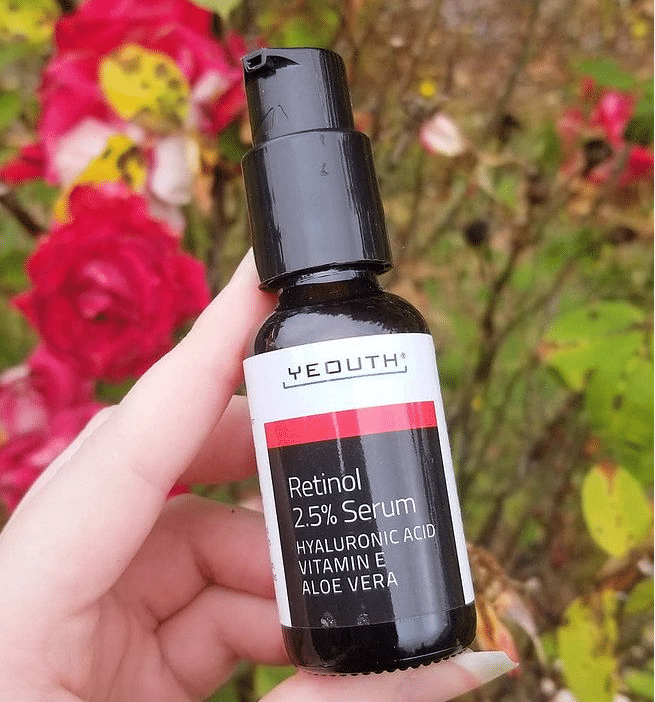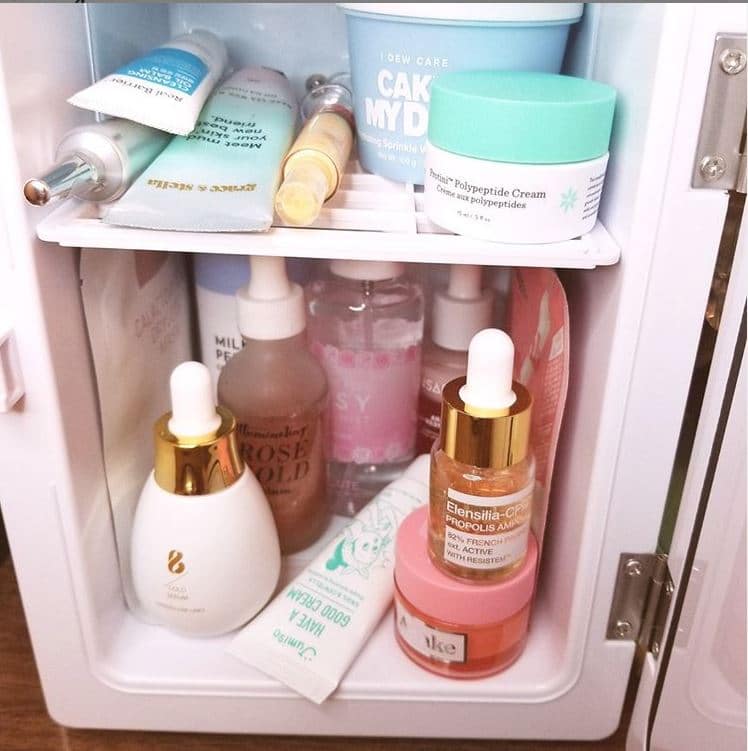When it comes to active ingredients such as retinol you may wonder if any special precautions need to be taken when storing anti-aging skincare. Retinol is an immensely helpful tool for treating many skin types but it can degrade if not stored properly.

How to Store Retinol
Skincare with retinol should be stored in a dark and cool place away from heat and sun exposure. Optionally it can be stored in the fridge which may extend its lifespan.
Refrigerating retinols and other Vitamin A derivatives can extend their shelf life and prevent accidental heat and light exposure. Storing sensitive skincare ingredients like retinol in a skincare fridge or even in a drawer in your regular fridge is an easy way to avoid common storage mistakes that can cause your serum to break down or oxidize.
Light and heat exposure is damaging to all retinoids. It can be a dangerous situation for your serum if it’s stored on a sunny windowsill or a frequently hot and steamy location like the bathroom. It is not mandatory to refrigerate retinol and it can safely be stored at room temperature. The only situation in which I would strongly recommend that you invest in a skincare fridge is if your home is frequently above 77° F/25°C. Even if you only experience high temps in the summer months it’s still good practice to protect your skincare by moving it to the fridge. It only takes one or two hot days to impact the effectiveness of your expensive skincare.
I am a fan of lengthy lava hot showers and our bathroom is quite tiny so I personally keep my favorite serums with actives in a dedicated skincare mini fridge. Storing your face masks in the fridge can also make for a very refreshing pamper session!
This article contains affiliate links; if you purchase a product through my link it will send some spare change my way to keep this slice of the internet up and running.

What Happens if You Don’t Refrigerate Retinol?
If you do not store your retinol in the fridge it will not impact its efficacy but it may shorten its shelf life. All retinoids including Adapalene, Tretinoin, and Retin-A can be safely stored at room temperature as long as they are not exposed to daylight. The manufacturer instructions for these prescription retinoids actually recommend that you store the products at room temperature. Your dermatologist will likely tell you the same thing!
High temperatures can alter “the chemical structure and composition of retinol, making it less biologically active.”
Gary Fisher, Professor of Dermatology University of Michigan Medical School 1
If a retinoid was exposed to direct sunlight or was stored in an area above room temperature for an extended period of time it will actually start to decompose. 1 Using a spoiled serum will not harm you but you certainly will not be getting the full benefits of that ingredient. Vitamin C is another sensitive ingredient that can spoil easily, expect it will change color and it’s quite easy to tell when the serum has lost its spark.
If you don’t have room for skincare bottles in your fridge be sure to find a dark cool location to store your products. The majority of retinol products are packaged in dark amber glass containers or opaque tubes which will protect the formula from light but it’s still a good rule of thumb to keep the bottles in a cabinet or drawer safely away from daylight.
I store my retinol along with other heat/light-sensitive actives like Vitamin C in a miniature skincare fridge that I picked up from Amazon here. These mini fridges are sold in many stores and are quite easy to set up, they can be used in the bathroom or even just set up in a tucked-away corner of the bedroom. I can’t speak for every mini fridge out there, but my Frigidaire makes zero noise and has chilled my skincare perfectly for 2+ years. If you’re in the market to find the perfect skincare fridge to protect your skincare goodies, I’ve gone over all the pros and cons here!
Recent Posts
There are two new sunscreens on the block and the lovely folks over at Kinfield gifted some tubes for me to to test out so I can share a skincare deep dive with y'all! This post contains affiliate...
Trying to find a sunscreen formulated without glycerin is no easy task! I've researched hundreds of sunscreen formulas while writing for this blog and it's shocking how extremely few glycerin-free...
